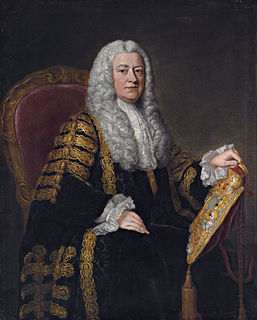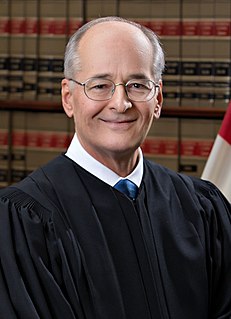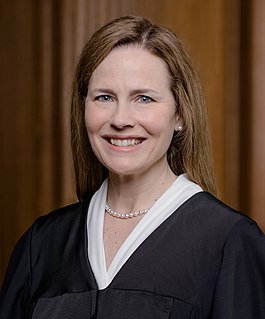A Quote by Philip Yorke, 1st Earl of Hardwicke
A reasonable fine is such as the law will judge to be so . . . but what a reasonable fine is, and who shall be the judge of it, the law has established no rule.
Quote Topics
Related Quotes
No person shall be restrained of his liberty but by regular process from a court of justice, authorized by a general law. . . . On complaint of an unlawful imprisonment to any judge whatsoever, he shall have the prisoner immediately brought before him and shall discharge him if his imprisonment be unlawful. The officer in whose custody the prisoner is shall obey the order of the judge, and both judge and officer shall be responsible civilly and criminally for a failure of duty herein.
People must be confident that a judge's decisions are determined by the law and only the law. He must be faithful to the Constitution and statutes passed by Congress. Fidelity to the Constitution and the law has been the cornerstone of my life and the hallmark of the kind of judge I have tried to be.
Since natural law was thought to be accessible to the ordinary man, the theory invited each juror to inquire for himself whether a particular rule of law was consonant with principles of higher law. This view is reflected in John Adams' statement that it would be an 'absurdity' for jurors to be required to accept the judge's view of the law, 'against their own opinion, judgment, and conscience.'
In a democracy - even if it is a so-called democracy like our white-?litist one - the greatest veneration one can show the rule of law is to keep a watch on it, and to reserve the right to judge unjust laws and the subversion of the function of the law by the power of the state. That vigilance is the most important proof of respect for the law.
There has been no clearer principle of English or American constitutional law than that, in criminal cases, it is not only the power and duty of juries to judge what are the facts, what is the law, and what is the moral intent of the accused; but that it is also their power, and their primary and paramount duty, to judge the justice of the law, and to hold all laws invalid, that are, in their opinion, unjust or oppressive, and find all persons guiltless in violating, or resisting the execution of, such laws.


































